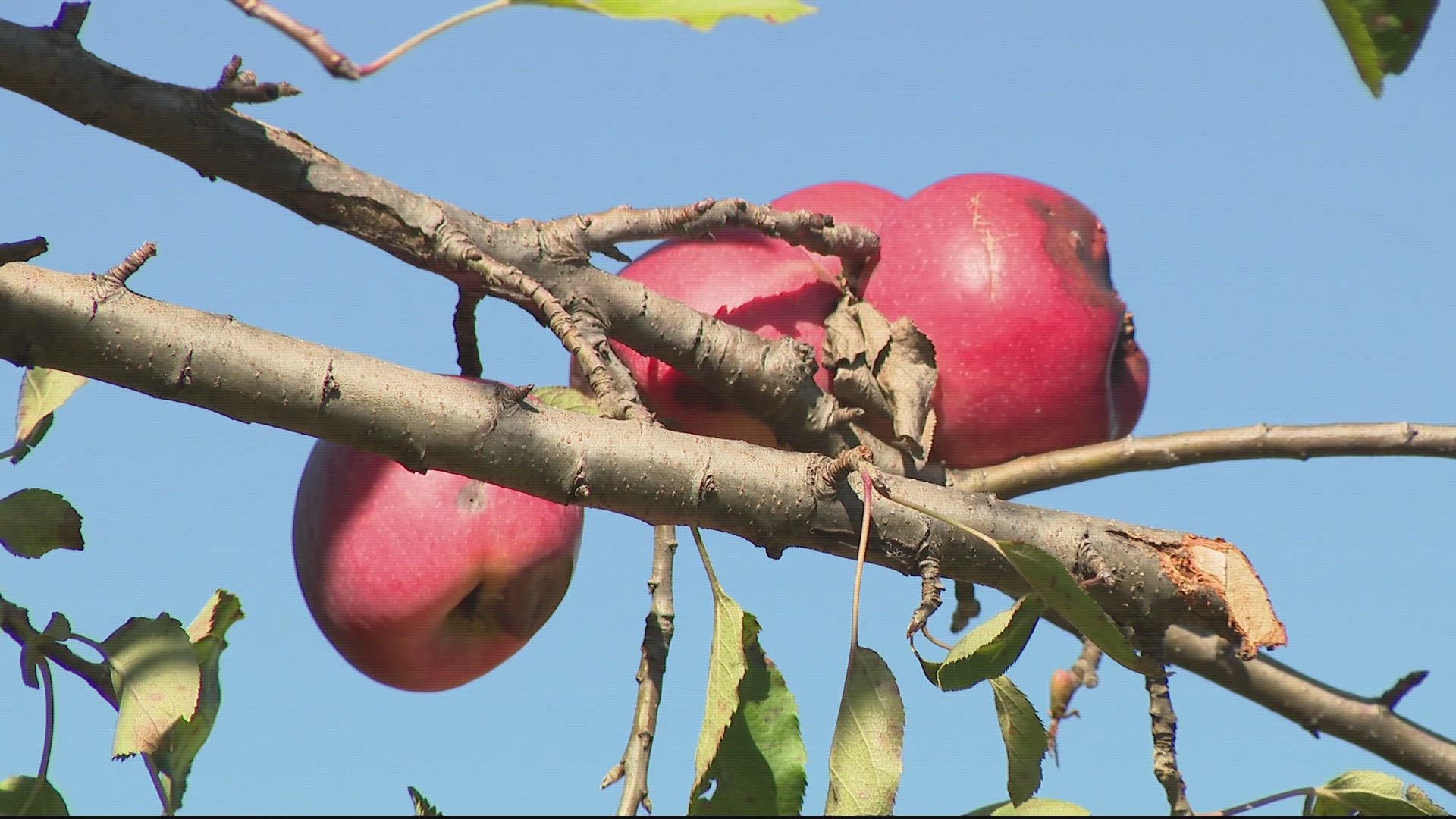KEEDYSVILLE, Maryland — As the fall months set in, aside from picking pumpkins, picking apples is a family favorite in the DMV.
Apple growers are facing numerous challenges from climate change to labor shortages and crop yield, just to name a few. WUSA9 took ECO9 to see what’s being done to help trees become more resistant to climate change.
In Keedysville, Maryland, you can find the Western Maryland Research Center. And in mid-October, it’s peak time for apple harvest.
Chris Walsh is a professor emeritus with the University of Maryland at College Park.
“We’re standing in the middle of what I call an elite apple selection orchard,” said Walsh.
UMD researchers like Walsh have been working for decades, creating two apple varieties that are resistant to climate change.
“I was interested in things that would be more sustainable and fit into hotter weather,” said Walsh.
Walsh works closely with people like Brian Spielman. Spielman is the Assistant Director of Facility Operations for the Western Maryland Research Center.
“I grew up here; I grew up three miles from this facility down the road on a farm,” said Spielman.
Spielman and Walsh both know the area, and they both know agriculture. They’ve teamed up to make an apple crop that is sustainable in the future.
“What we’re looking for here is to genetically modify these trees,” said Spielman.
Researchers like Walsh tweak the genetic makeup of the trees until they get the ideal result.
“It’s a delicate balance, and that’s where this breeding program comes in – to try and get the trees to produce the best fruit no matter what kind of weather we’re having,” said Spielman.
The result is apples that are better adapted to grow in warmer climates and more efficient to maintain and harvest.
“Agriculture is a constantly changing field, we’re constantly modifying things, trying to do everything better. As costs increase, we still have to make a profit,” said Spielman.
The new apples are bred for resiliency when it comes to a changing climate, but Spielman says they taste great too. The new varieties come in red and yellow.
“I like the red myself; they’re a little bittier – a little more tart,” said Spielman.
Even though the apples taste great, it’s not just about the apples.
“We’re running out of open space, and one of the things that orchards do is they maintain land that doesn’t have houses on them,” said Walsh. “If they’re not profitable, the next thing they’ll do is sell to a developer and then it becomes more housing, so the orchard space is really keeping green space out there.”
It’s about longevity and resilience, in more ways than one.
“The center of the apple industry is 20 miles north of here in Smithsburg and Frederick, and so I’m trying to do things here that will make it so their family farms will stay in business for another generation,” said Walsh.
Walsh has successfully secured a patent on two new types of apple varieties that could become a more resilient option for orchards in the future.
WATCH NEXT: Dairy farmers fight climate change | ECO9

